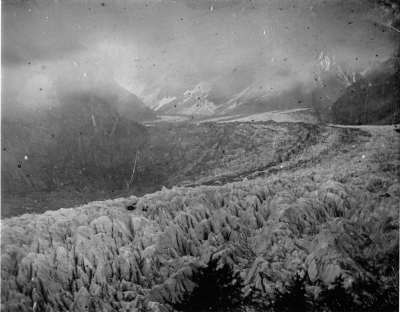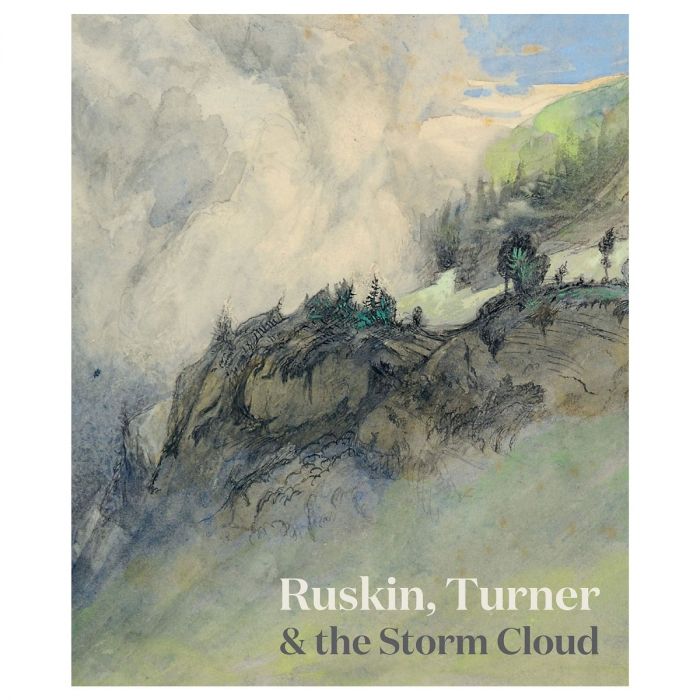POSTPONED: Ruskin Seminar with Suzanne Fagence Cooper: Storm Clouds and the Sea of Ice - Ruskin in the Alps
Thursday 30 April 2020, 4:15pm to 6:00pm
Venue
The Ruskin, Lancaster - View MapOpen to
Alumni, Applicants, External Organisations, Postgraduates, Public, Staff, UndergraduatesRegistration
Free to attend - registration requiredRegistration Info
Please note: this event has been postponed in response to COVID-19.
Event Details
Suzanne Fagence Cooper will examine the interconnections between Ruskin’s observations of changing Alpine skyscapes and landscapes over 40 years, and his own concerns about personal fragility and decline.
Please note: this event has been postponed in response to COVID-19.
This year, the Ruskin Seminars explore the relevance of Ruskin’s thinking to topics ranging from ecological crisis to evolutionary theory.
Writing in his diary in September 1882, Ruskin felt both renewed and disheartened by the changes he found in himself, and in his beloved mountains: ‘I never have been happier in seeing the Alps once more – nor felt more desire to do better work on them than ever yet. And I never was so persecuted by the storms and clouds.’
His experience of the ‘phantasmagoria of smoke-clouds and a sleepless night’ made him despondent. And yet, as he ‘walked up the old glacier and out to the ridge’, he felt able to tackle one of the most poignant parts of Praeterita – his memory of childhood Sundays with his father.
This seminar will examine the interconnections between Ruskin’s observations of changing Alpine skyscapes and landscapes over 40 years, with his own concerns about personal fragility and decline. In particular, it will focus on his concerns about the spread of the ‘Storm Cloud of the Nineteenth Century’ – in the form of industrial pollution, climate change and the modern tourist industry – to the air and ice of the Alps. Having made detailed records of the glaciers and skies around Mont Blanc and Geneva from his youth, Ruskin saw the darkening clouds and the retreating ‘Mer de Glace’ as devastating from both a personal and a wider environmental point of view.
In his lectures and writings, Ruskin consistently drew attention to the damage being done to the wild places he had known from boyhood, in Britain, France, Switzerland and Italy. He also highlighted the harm to his own mental-health, caused by the experience of loss of beautiful, diverse habitats, and clear skies. As he wrote to a friend: ‘I have never seen the falling away and vanishing of our best life properly described…the ruin of the things we loved. Our Geneva – our Como – our Verona – twice dead – and plucked up by the roots.’
It became his mission to describe it accurately and emphatically himself. But this double death left him grieving for his own past, and for the future generations who would never see the lovely sunsets or crevasses and colours of the glaciers he had recorded.
This seminar will be illustrated with examples of Ruskin’s watercolours, daguerreotypes and manuscripts, alongside newly commissioned works of art by Emma Stibbon RA, that respond to Ruskin’s journeys in the Alps, and the images he made there. Seen together, they document the extent of the retreat of the Mer de Glace, and the acceleration of the damage that Ruskin began to highlight in the 1870s.
Dr Suzanne Fagence Cooper is Research Curator at York Art Gallery. She is the editor and curator of ‘Ruskin, Turner & the Storm Cloud’, exhibition and book, March 2019; author, ‘To See Clearly: Why Ruskin Matters’, Feb 2019; author, ‘Effie Gray’, 2010; author, ‘Pre-Raphaelite Art in the V&A Musem’, 2003; Co-Curator, ‘The Victorian Vision’, V&A Museum, London, 2001.
Image: Chamonix. Mer de Glace, Mont Blanc Massif, 1854. John Ruskin and Frederick Crawley. © The Ruskin, Lancaster University.
Gallery
Contact Details
| Name | Harriet Hill-Payne |
| Telephone number |
+44 1524 594755 |



